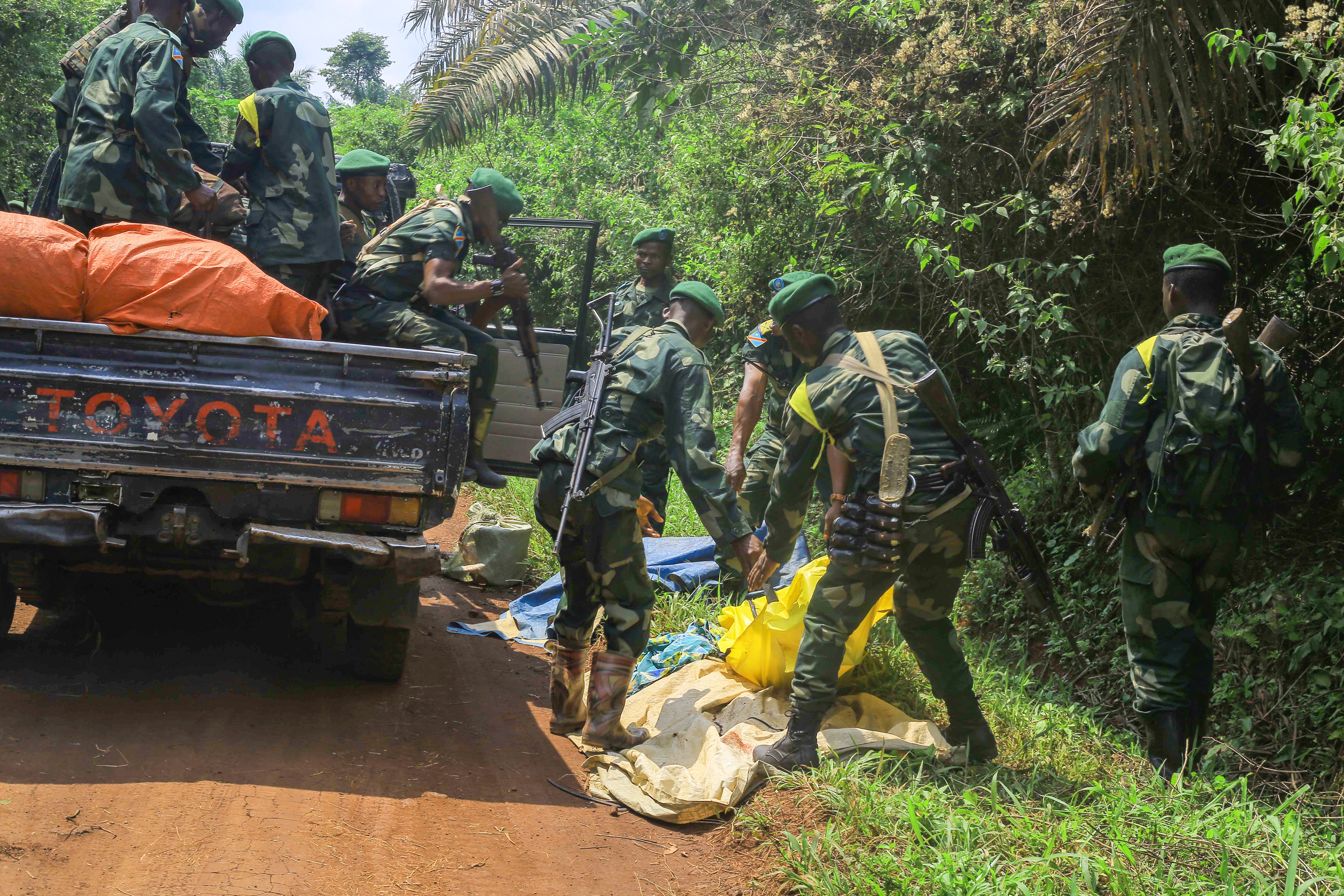At least 32 civilians killed in eastern Congo, says the U.N.
The United Nations says at least 32 civilians were killed by rebel groups in eastern Congo’s Ituri province

Your support helps us to tell the story
From reproductive rights to climate change to Big Tech, The Independent is on the ground when the story is developing. Whether it's investigating the financials of Elon Musk's pro-Trump PAC or producing our latest documentary, 'The A Word', which shines a light on the American women fighting for reproductive rights, we know how important it is to parse out the facts from the messaging.
At such a critical moment in US history, we need reporters on the ground. Your donation allows us to keep sending journalists to speak to both sides of the story.
The Independent is trusted by Americans across the entire political spectrum. And unlike many other quality news outlets, we choose not to lock Americans out of our reporting and analysis with paywalls. We believe quality journalism should be available to everyone, paid for by those who can afford it.
Your support makes all the difference.At least 32 civilians have been killed by rebel groups in eastern Congo's Ituri province, said a spokesman for the United Nations.
Twenty people were killed by the militia group CODECO and a dozen were killed by the Allied Democratic Forces, which is allied to the Islamic State group, U.N. spokesman Stephane Dujarric said in a press conference on Monday.
Calling the situation “confusing,” Dujarric said it is hard for the U.N. peacekeeping mission in Congo to get more information due to restricted movement in the area.
Fighting between CODECO, a loose association of various ethnic Lendu militia groups, and Zaire, a mainly ethnic Hema self-defense group, has been ongoing since 2017 but has worsened recently. At least 32 civilians were killed by CODECO last month, say local officials. In December, the United Nations said the insurgent group was expanding its areas of control, attacking civilians and Congo's military, and taxing communities in the areas that it holds.
The killings come amid surging violence across eastern Congo, where conflict has been simmering for decades as more than 120 armed groups are fighting in the region, most for land and control of mines with valuable minerals, while some groups are trying to protect their communities.
In neighboring North Kivu province, the situation is deteriorating as the M23 rebel group, which was dormant for nearly a decade and resurfaced at the end of 2021, continues to seize swaths of territory and killing civilians.
The M23 first rose to prominence 10 years ago when its fighters seized Goma, the largest city in Congo’s east, which sits on the border with Rwanda. The group derives its name from a peace agreement signed on March 23, 2009 which called for the rebels to be integrated into the Congo army. The M23 accuse the government of not implementing the accord. The group is believed to have backing from Rwanda, findings supported by the U.N.
A peace agreement last year made during a summit in Angola was supposed to see the M23 withdraw from areas it had captured, however that is not being implemented, according to local residents.
Last week M23 fighters advanced toward Sake town in the Masisi area, displacing more than 65,000 people, according to an internal report for aid groups seen by The Associated Press. The rebels' advance increases the risk of isolating Goma and cutting off humanitarian access, say aid agencies.
The U.N. peacekeeping mission in Congo, known as MONUSCO, has also been attacked amid the volatility.
Earlier this month one of the U.N. mission's helicopters came under fire in North Kivu province, killing a South African peacekeeper and injuring another, said the U.N. No one has claimed responsibility for the attack. The United Nations Security Council said the deliberate targeting of peacekeepers could constitute war crimes.
——————
Associated Press journalists Edith M. Lederer in New York and Christina Malkia in Kinshasa contributed.